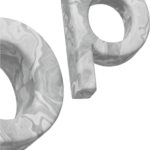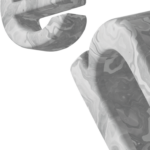

Set up your shop
Manage my administrative procedures

Accounting limit for self-employment tax
21 April 2023
Are you self-employed? Are you lost in a sea of confusion over tax regulations and rules in the UK? Well, worry no more; all your questions about tax rates for the self-employed will be dealt with in this article. Paying taxes can be tricky without guidance if you are the owner of a registered retail or online store or any other business. Read on to stay well-informed about self-employment tax rates and other rules relating to self-employment in the UK.
Summary
- What is Self-Employment Tax
- The Different Tax Rates for Self-Employed Retailers
- How Much to Pay as a Retailer
- Tax Evaluation for Small Businesses and Self-Employed Individuals
- Understanding Business Expenses
- Tax Planning Strategies
- Tax Filing Requirements
- Tax Audits
- Common Mistakes to Avoid
- Take Away
- FAQs
What is Self-Employment Tax
Before going any further, the meaning of self-employment tax and the Self-Employment Tax Rate should be clarified. As a social security contribution, self-employment tax is paid by people who work for themselves and helps fund benefits such as the state pension.
If someone previously employed you, you’ve probably never dealt with self-employment tax, as your income tax and national insurance contributions were deducted automatically from your pay. But as a sole owner, calculating your self-employment tax might be a tricky task. You’ll need to ask yourself questions such as, how much tax do I have to pay? When do I have to pay for it? How do I calculate the amount? How much do my annual earnings have to be before I’m liable to pay taxes? What if I make a mistake on my tax returns?
Tax rates for the self-employed are calculated based on your self-employment income, gross annual salary, self-employment expenses and pension contributions. This amount is your estimated income and national insurance tax bill.
The Different Tax Rates for Self-Employed Retailers
When you are self-employed, the profits from your business are subjected to income tax, not your overall revenue. That may sound confusing at first, so let’s break it down into a manageable example.
If you made £100,000 in sales over the course of the year, you are not liable to pay income taxes up to that sum. In order to find out how much is taxable, you will want to deduct any related business expenses. These include everything from rent for your business premises, marketing expenses, and the wholesale cost spent to purchase the items you sold, for example. In this example, imagine these and other legally deductible expenses total up to £80,000. Your taxable income would then be £100,000 – £80,000, i.e., £20,000.
The UK has three different tax rates: 20%, 40% and 45%. The table below provides an overview of the various tax brackets that may apply to your earnings.
Income Tax band |
Taxable income |
Rate of tax |
|---|---|---|
|
Personal allowance |
Up to £12,570 |
0% |
|
Basic rate |
£12,571-£50,270 |
20% |
|
Higher rate |
£50,271-£150,000 |
40% |
|
Additional rate |
Over £150,000 |
45% |
How Much to Pay as a Retailer
How much you earn as self-employed before paying tax is something you must estimate before you pay your taxes. There is a personal allowance to which you are entitled by the government, which is tax-free. When your revenues exceed the government’s specific limit, you must pay taxes.
A personal allowance is an amount you earn before starting to pay taxes. If you have two jobs and one is self-employed, you are allowed only one personal allowance by the government. A self-employed second job tax calculator can estimate the personal allowance amount and the tax amount you must pay. Calculating your self-employment tax should be best left to professionals who can accurately and competently keep your finances in order.
Tax Evaluation for Small Businesses and Self-Employed Individuals
Before determining your self-employment tax, you must first know what kind of sole owner you are. Not all small business owners fall under the self-employed category; being self-employed does not necessarily mean you are the only person working at the business. You may have a partner or employees. Before paying tax, you must carefully differentiate the kind of business person you are. After that, there are many additional issues to consider. Some of them are:
Registration
After deciding to be self-employed, you must register with the HMRC, which stands for HM Revenues and Customs. To do that, go to GOV.UK. You might have to pay the penalty if you register too late, so try registering as soon as you open your retail or online store. You must register by the October following the end of the tax year you started your business. A tax year runs from April to April.
What Taxes To Pay
When the registration process is complete, you must decide which taxes you must pay the government. Heavy penalties may be added to your tax amount in case of non-payment or late payment. So, the payment of your taxes is a necessary step.
The taxes your business pays depend on elements such as where your business is set up, your assets, or if you have engaged staff. Your business will be taxed on profits after deducting losses and expenses.
The taxes most businesses pay are:
- Corporation Tax: If your company is a limited company, which is a separate entity answerable only to its directors and shareholders, you will pay tax on its profits.
- Income Tax: Income tax is also deducted from your profits. Even if you are the sole owner and pay yourself a salary or take dividends, you must declare all your records.
- Value-Added Tax (VAT): VAT is added to most services and goods. You must register to pay VAT if your sales exceed a specific limit. Some small businesses register even though they earn under the required limit because of its advantages.
- National Insurance Contributions: You must pay national insurance contributions if you are taking a salary from your company. There are some instances where you may be eligible for reductions.
Business Rates: The amount of this tax is directly proportional to the value of your business property. Although you will still be taxed if you work from home.
Understanding Business Expenses
You can deduct the cost of your business expenses from your income. The most common types of deductible expenses include:
- Advertising costs
- Bad debts (uncollectible amounts owed to you)
- Bank charges and interest paid on loans used for business purposes, such as overdrafts or loans secured on property used in your trade or profession
- Capital expenditure (expenditure on assets that last more than one year) – this may be written off over its useful life rather than immediately deducted from profits
- Car mileage if you use a personal car for work purposes
You must keep records of all these items so that they can be claimed when filing your tax return at the end of each financial year.
Tax Planning Strategies
Tax planning strategies are designed to help self-employed individuals and small businesses minimise their tax liabilities and maximise their after-tax income. Here are some tax planning strategies that can be used:
- Claim allowable expenses: As a self-employed individual, you can claim allowable expenses to reduce your taxable profits, including expenses such as printing pamphlets or online advertising designed to raise awareness of your shop.
- Utilise tax relief for pension contributions: Self-employed individuals can claim tax relief on pension contributions, which can help reduce their tax bill.
- Use the trading allowance: If your self-employment income is less than £1,000, you may be eligible for the trading allowance, so you won’t have to pay tax on this income.
- Consider incorporating: Incorporating your business can provide tax advantages, including lower tax rates, and allow you to separate your personal and business finances.
- Plan your earnings: Planning your earnings can help you avoid going over the Class 2 or Class 4 National Insurance thresholds, which can result in higher self-employment tax.
- Claim losses: If your business makes a loss, you can carry this forward to offset future profits, reducing your tax bill.
- Hire a qualified accountant: Working with a qualified accountant can help you navigate complex tax laws and ensure you take advantage of all available tax planning opportunities.
It’s important to note that tax laws and regulations can be complex and are subject to change. Therefore, it is recommended that you seek the advice of a qualified accountant or tax professional for specific advice for your self-employment tax in the UK.
Tax Filing Requirements
As a retailer, you must file taxes each year. You should file your tax return on or before April 5th of the following year if you are an individual or partnership; otherwise, you can file until June 30th (for corporations).
There are three main types of self-employment income:
- Gross receipts from retail sales – these include all sales made by your business over the course of a year. Gross receipts may also include any other income from your business activities, such as interest earned on investments and rent paid for property used in connection with your trade or profession.
- Net profit from non-retail activities – this includes any profits made outside of retailing but within the same industry as your primary occupation (e.g., if you own two shops selling electronics).
- Other net earnings – these include any income not included under gross receipts or net profit from non-retail activities, such as royalties received for patents held by yourself or someone else who works directly under your supervision at least 50% of their time during each tax year.
Tax Audits
The tax authorities will want to know if you have been paying the correct amount of tax, so they may ask for proof that your expenses are legitimate. If you have kept good records and can prove that all of your purchases were for business purposes, this should not be a problem.
If the HMRC does decide to audit your accounts, they will send an inspector who will interview you and examine all of your records before deciding on whether or not there has been an error made in calculating self-employment tax as a retailer in the UK.
Common Mistakes to Avoid
When it comes to taxes, there are many common mistakes that taxpayers make. Here are some of the most common mistakes to avoid:
- Failing to keep accurate records: Keeping accurate records is essential to ensure that you are claiming all allowable deductions and credits and accurately reporting your income.
- Missing deadlines: Failing to meet tax filing and payment deadlines can result in penalties and interest charges.
- Failing to report all income: All income, including income from side jobs or freelance work, must be reported on your tax return. Failing to report all income can result in penalties and interest charges.
- Claiming ineligible deductions or credits: Only deductions and credits that you are eligible for should be claimed on your tax return. Claiming ineligible deductions or credits can result in penalties and interest charges.
- Filing with incorrect information: Filing your tax return with incorrect information can result in penalties and interest charges. It’s important to double-check all information before filing.
By avoiding these common mistakes and taking a proactive approach to tax planning, you can reduce your tax liability and avoid costly penalties and interest charges.
Take Away
As a retailer, it’s important to understand the rules and regulations around self-employment tax. You must also find the right accountant to help you navigate this complex process.
FAQs
How much can you earn as self-employed before paying taxes?
As stated above, the government has set an amount that you earn which is tax-free, as a personal allowance. If your earnings exceed this amount, you will have to pay taxes.
What is self-employment tax?
Your self-employment income estimates tax rates for the self-employed. Gross annual salary, losses and expenses, and taxes are deducted from your profits.
What is the deadline to pay taxes?
The self-employed must pay taxes annually unless registered as a limited company. This provides a self-employed payroll service in which the company pays taxes for work performed. You must pay your taxes before midnight, January 31st, after the tax year in question ends.
What if I make a mistake on my returns?
This is a widespread occurrence, so don’t worry. HMRC has made rectifying mistakes in your tax return forms more accessible.
Do I need to fill in a self-assessment tax return?
Some requirements must be considered before filling in a self-assessment tax return form, mainly regarding your income and revenues. This form is tricky and must be filled out correctly to avoid penalties. It is better to leave it to professionals like us to assist you.
Related posts "Manage my administrative procedures"

Ankorstart experts share some tips on how to produce a purchase order to streamline business practices, manage finances, and ensure to have enough stock.

Ankorstart experts explain safety guidelines for a retail store, identifying potential risks and providing insight on how to avoid injuries through the implementation of security policies.

Learn thanks to the Ankorstart experts how to protect your brand and what a trademark is

The POS is part of the customer experience. Here are a few pieces of advice to ensure you will choose the right tool while starting your business.


